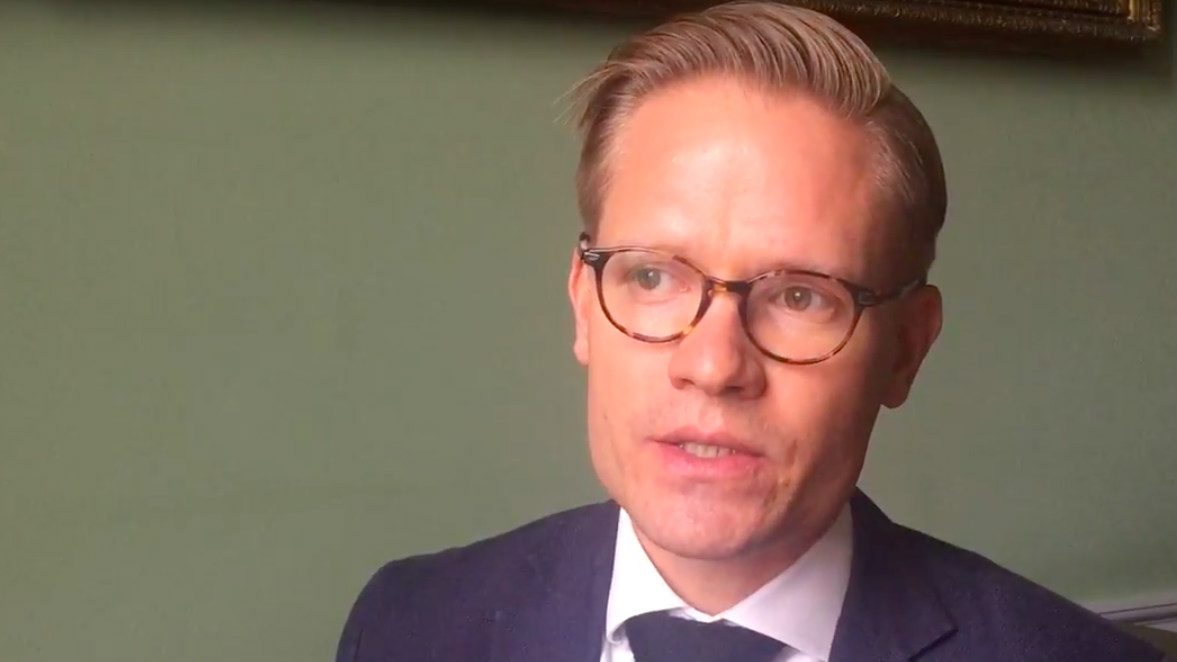SUMMARY
This is AI generated summarization, which may have errors. For context, always refer to the full article.

MANILA, Philippines – Now’s not the time for journalism to hang its head. While journalism is facing challenges from a number of fronts – externally from entities waging war against the truth; and internally as journalists question their place in the world – journalism today is still better than it has ever been.
These were the thoughts of Rasmus Kleis Nielsen, the 35-year-old Dane currently serving as the Director of Research for the Reuters Institute for the Study of Journalism at Oxford University, but who will eventually be the institute’s head come October 1.
Nielsen, in a short interview with Rappler CEO Maria Ressa, discussed several facets of the state of journalism today – its challenges, where it stands now, and its interplay with digital technologies.
Nielsen’s stance is that of optimism. Recalling a time when newspapers, radio and TV served as the primary channel to disseminate the news, Nielsen says that these pre-social media avenues served our parents’ and grandparents’ generations well. Strong virtues were formed during those years that served as pillars for journalism.
But the fondness doesn’t go past the momentary nostalgia. “I don’t miss it,” he said. He, and anyone else other than 40, wouldn’t want to return to that, Nielsen surmised. Though there were certainties during the time that made journalism feel more well-defined than it is now – the power, profitability, career progressions, the principles – today’s technologies, and the tough challenges they have posed, have also enabled better journalists now.
“In most ways, it seems that the majority of the world’s population on the balance are voting with their attention, and embracing digital media, and feel like this is a better environment. And I’m very glad to see that journalists all over the world, and editors and executives and news organizations all over the world, are not only begrudgingly accepting that this is where the public is – and if you want to serve the public you have to be with it – but are embracing it enthusiastically,” Nielsen said.
More diverse and more accessible than ever
Today, with the technologies available now, we see the best forms of journalism, Nielsen said. Journalism is more informative, more diverse and more accessible than it was in the past. These things make journalism healthier than it’s ever been. It’s also certainly more interactive now in a relationship that’s marked by mutual exchange rather than being a uni-directional one: the media feeding the reader information.
This change in dynamic, Nielsen says, has imbued journalists with more humility. There’s a realization that one old industry mantra – “we have truth; you don’t” – does not work anymore, Nielsen said. The deeper that journalists realize this, and the more that they can “‘fess up to mistakes,” the healthier their relationship with the public will be, he said.
And more than ever, it is important to strengthen this relationship with the public, some of whom have become distrustful of mainstream media. To do so, journalists must continually ask themselves: how one can make sure that their journalism is empowering? What can it do to reinvent itself? And why has the trust seemingly eroded?
Part of the erosion of trust can be traced to social media platforms now, which Nielsen describes as “not being conscious enough of their public responsibilities” – although they have been trying to “up their game.” They have a long way to go, however, and Nielsen believes that it will be painful and often destructive before its problems are sorted out.
Yet in spite of the road ahead and the changes it faces, Nielsen believes that the timeless aspects of journalism will help the industry in its most challenging times:
“I think there are some parts of journalism that truly are timeless. The missions and principles are enduring. The aspiration to find truth and report it. The first commitment of journalism is to the best obtainable version of the truth. I think that’s a timeless commitment. And I realize that not many journalists are privileged enough to work in an organisation where they can actually do it but they often want to. And I don’t think that’s going to change. That’s a very important commitment for journalists.” – Rappler.com
Add a comment
How does this make you feel?
There are no comments yet. Add your comment to start the conversation.